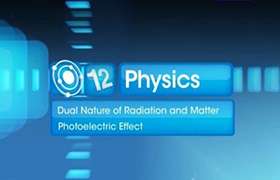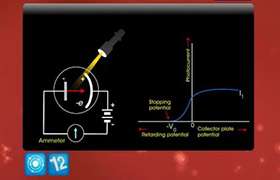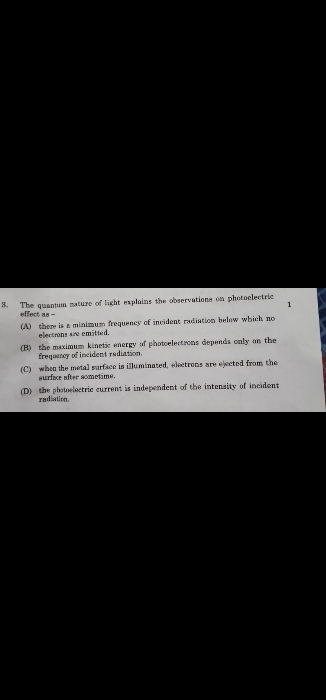CBSE Class 12-science Answered
Light of intensity ‘I’ and frequency ‘n’ is incident on a photosensitive surface and causes photoelectric emission. What will be the effect on anode current when(i) the intensity of light is gradually increased, (ii) the frequency of incident radiation is increased, and (iii) the anode potential is increased? In each case, all other factors remain the same. Explain, giving justification in each case.
Asked by Topperlearning User | 08 Jul, 2015, 01:43: PM
- Keeping the anode potential and the frequency of the incident radiation constant, if the intensity of the incident light is increased, the photoelectric current or the anode current increases linearly. This is because photoelectric current is directly proportional to the number of photoelectrons emitted per second which is directly proportional to the intensity of the incident radiation.
- For photoelectric emission to occur, there is a minimum cut off frequency of the incident radiation called the threshold frequency below which no photoelectric emission occurs. This frequency is independent of the intensity of the incident light. With an increase in the frequency of the incident radiation, the kinetic energy of the photoelectrons ejected increases, whereas it is independent of the number of photoelectrons ejected. Hence, with the increase in the frequency of incident radiation, there will not be any change in the anode current.
- With an increase in the accelerating potential, the photoelectric current increases first, reaches maximum when all the electrons gets collected at the positive potential plate and then remains constant. The maximum value of the anode current is called the saturation current.
Answered by | 08 Jul, 2015, 03:43: PM
Concept Videos
CBSE 12-science - Physics
Asked by mishrigupta19319 | 08 Apr, 2024, 06:28: PM
CBSE 12-science - Physics
Asked by mishrigupta19319 | 07 Apr, 2024, 11:23: AM
CBSE 12-science - Physics
Asked by shivakumarshreyas24 | 01 Mar, 2020, 08:12: AM
CBSE 12-science - Physics
Asked by khushimassey437 | 31 May, 2019, 08:41: AM
CBSE 12-science - Physics
Asked by manasvijha | 19 Mar, 2019, 07:17: PM
CBSE 12-science - Physics
Asked by Topperlearning User | 04 Jun, 2014, 01:23: PM
CBSE 12-science - Physics
Asked by Topperlearning User | 04 Jun, 2014, 01:23: PM
CBSE 12-science - Physics
Asked by Topperlearning User | 04 Jun, 2014, 01:23: PM
CBSE 12-science - Physics
Asked by Topperlearning User | 04 Jun, 2014, 01:23: PM
CBSE 12-science - Physics
Asked by Topperlearning User | 04 Jun, 2014, 01:23: PM






